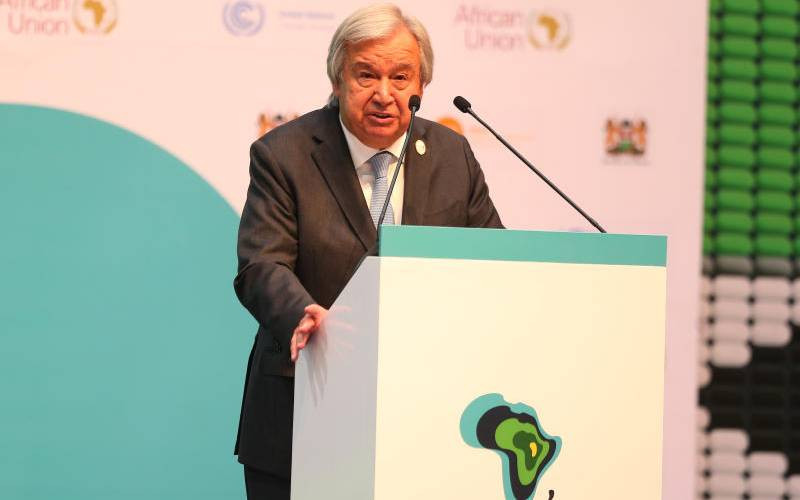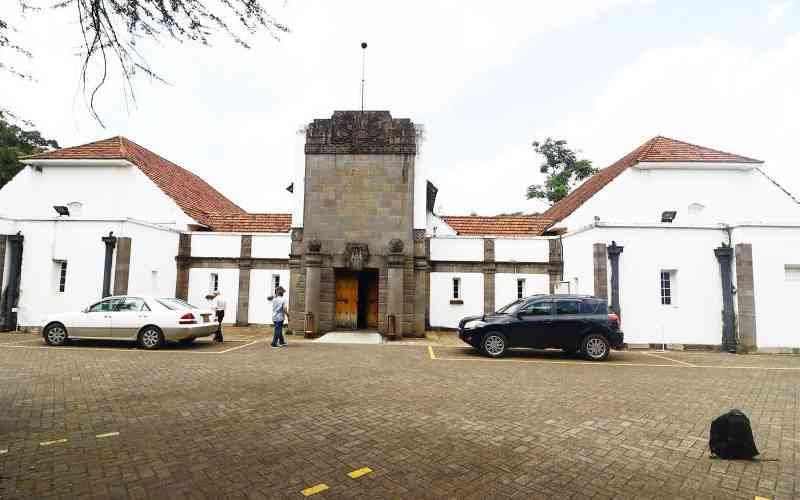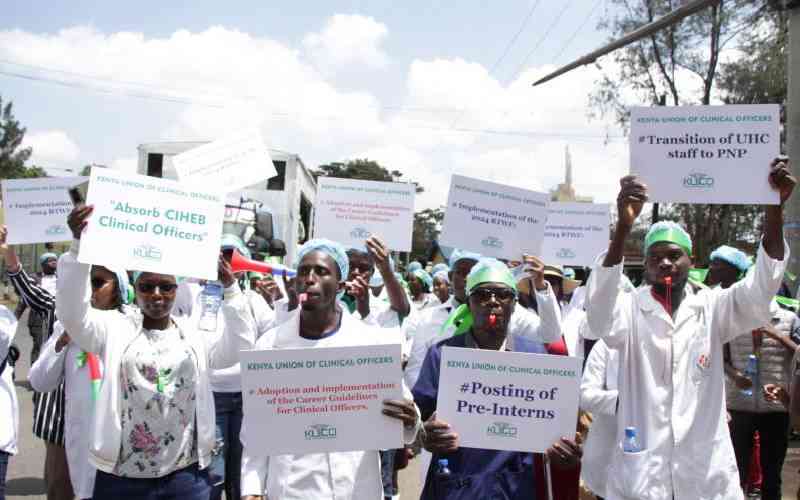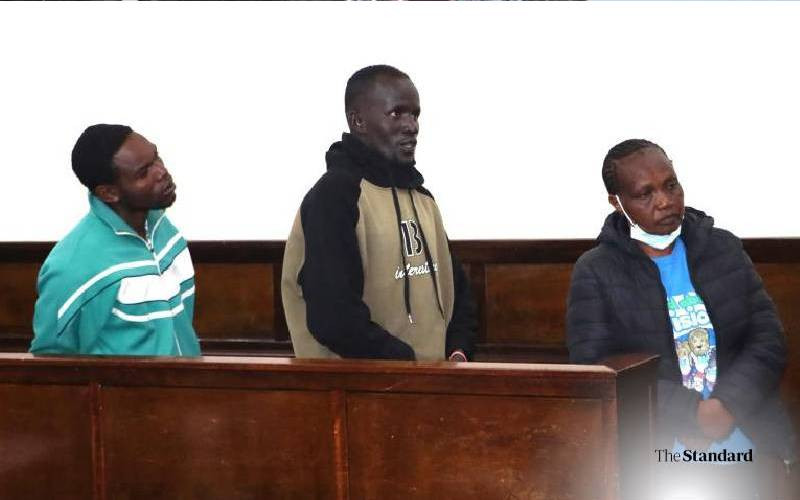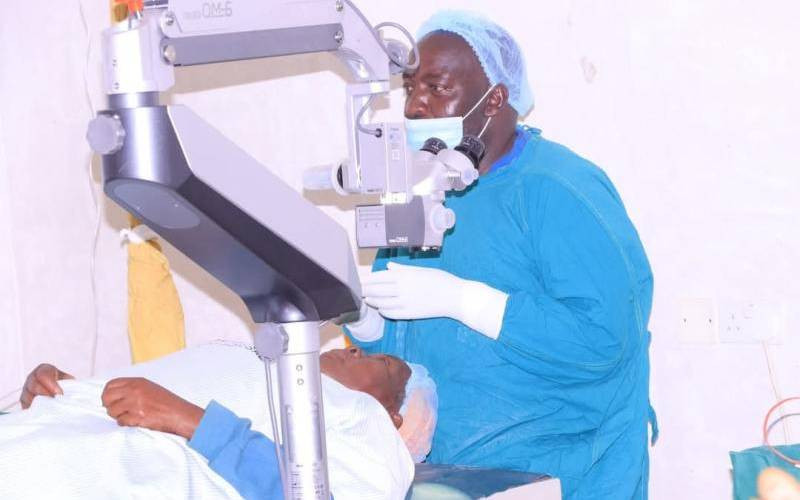
For over five decades, Teresa Chepkwemoi has tilled the soil of her farm in John Power Village, Endebess Constituency in Trans Nzoia County.
From maize and beans to indigenous vegetables and finger millet, Chepkwemoi has worked tirelessly to put food on the table for her family. But little did she know that her daily exposure to the sun’s harsh ultraviolet (UV) rays was slowly robbing her of her sight.
“I started experiencing photophobia (sensitivity to light) about seven years ago. Later, my vision became blurry, but I thought it was just a normal condition,” Chepkwemoi told The Standard recently.
Like many rural residents with limited access to healthcare, she turned to traditional remedies, crushing leaves and squeezing their juice into her eyes, hoping for relief. But her condition worsened. Sewing clothes became a struggle, threading a needle impossible. Her grandchildren had to help her with simple household tasks.
Then, five months ago, darkness engulfed her world. She could no longer recognize familiar faces. Fear gripped her.
“I thought of going to the hospital, but I was worried about the cost of surgery for both eyes,” she said. “I didn’t even have the fare to get there.”
But salvation came, albeit unexpectedly.
One evening, as she listened to Radio Maisha, she heard an announcement about a free eye clinic at Andersen Medical Centre. The initiative, led by Pankaj Social Services in collaboration with the Trans Nzoia County government, offered free eye check-ups, consultations, and surgeries.
Determined, she borrowed money for a motorcycle ride to the medical camp.
There, doctors diagnosed her with cataracts, a condition caused by prolonged UV exposure that clouds the eye’s lens, leading to vision loss.
“I had surgery on my right eye first, then the left the following day. Now I can see again! It reminded me of the days when I had just gotten married,” she said, her face breaking into a radiant smile.
Chepkwemoi is not alone.
Elimina Nangila, 67, traveled 35 kilometres from Chepsiro village in Cherang’any constituency for the same surgery.
“I had been struggling for a year. I could not see the numbers on my phone to call my grandchildren. I could not sort out stones from rice or beans before cooking. Even going to church became impossible,” Nangila said.
Stay informed. Subscribe to our newsletter
Like Chepkwemoi, Nangila spent decades farming to support her family. But years of exposure to the sun’s relentless UV rays took their toll.
“When my sight started failing, I thought it was just old age. I never knew it was something that could be treated.” She admitted
After a successful operation, Nangila is overjoyed.
“I can go to church again! I can visit my neighbours, go to the shop, and finally see my surroundings!” she exclaimed.
According to Hillary Rono, an eye specialist involved in the free clinic, farmers in Trans Nzoia face a significantly higher risk of developing cataracts due to prolonged exposure to UV radiation while working outdoors.
“Long hours in the sun damage the lens of the eye, leading to cataract formation. Additionally, farmers face the risk of eye injuries from flying debris, dust, and plant pollen, all of which can contribute to eye diseases,” Dr Rono explained.
Rono added that farmers also suffer from eye ulcers caused by injuries sustained while working.
Research conducted by the Trans Nzoia County government supports this claim.
County Secretary Truphosa Amere said their findings showed that many farmers develop eye problems due to exposure to dust, dirt, and plant debris.
 The Standard Group Plc is a
multi-media organization with investments in media platforms spanning newspaper
print operations, television, radio broadcasting, digital and online services. The
Standard Group is recognized as a leading multi-media house in Kenya with a key
influence in matters of national and international interest.
The Standard Group Plc is a
multi-media organization with investments in media platforms spanning newspaper
print operations, television, radio broadcasting, digital and online services. The
Standard Group is recognized as a leading multi-media house in Kenya with a key
influence in matters of national and international interest.
 The Standard Group Plc is a
multi-media organization with investments in media platforms spanning newspaper
print operations, television, radio broadcasting, digital and online services. The
Standard Group is recognized as a leading multi-media house in Kenya with a key
influence in matters of national and international interest.
The Standard Group Plc is a
multi-media organization with investments in media platforms spanning newspaper
print operations, television, radio broadcasting, digital and online services. The
Standard Group is recognized as a leading multi-media house in Kenya with a key
influence in matters of national and international interest.


